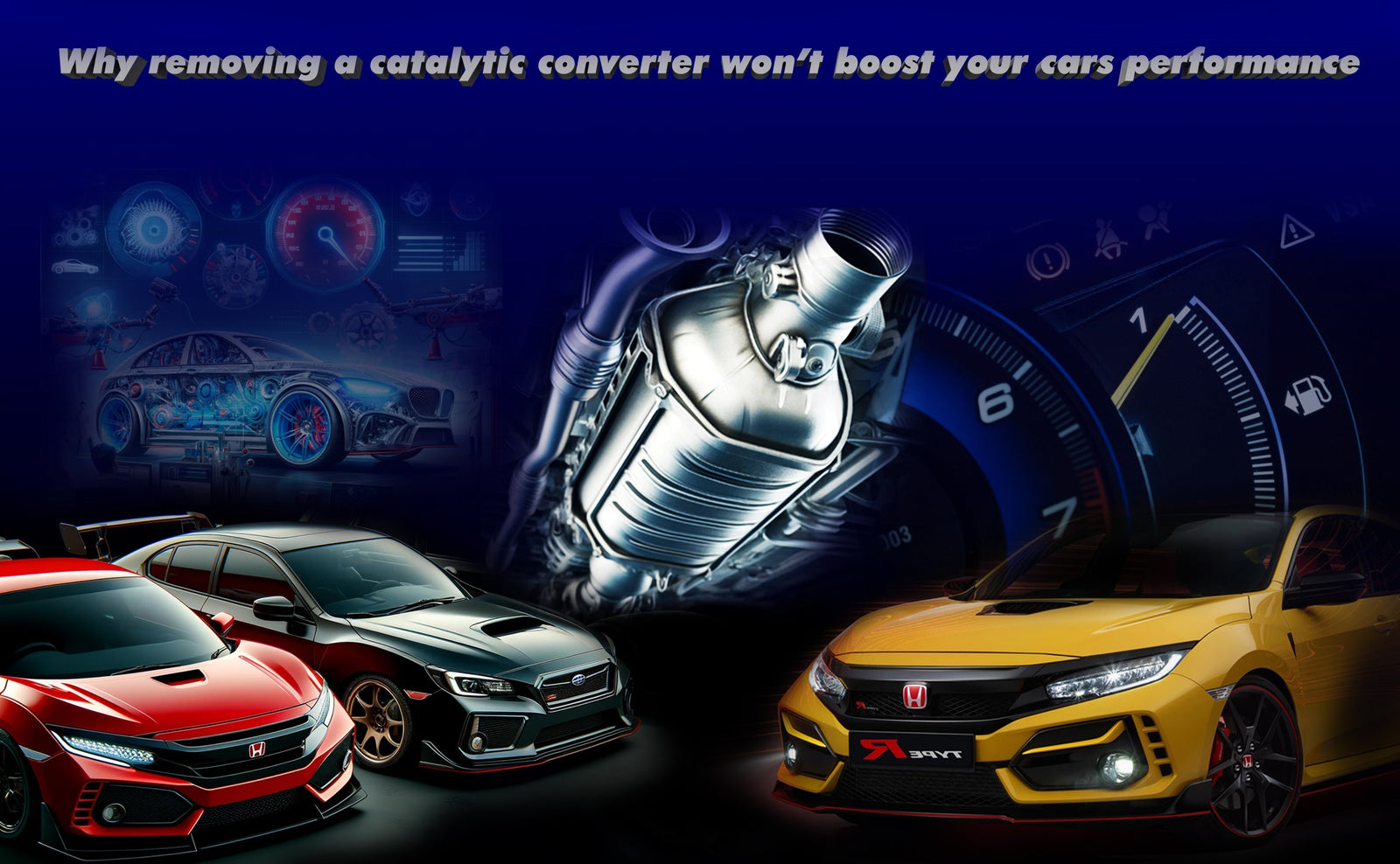The automotive world is full of myths and misconceptions, one of which is the idea that removing a catalytic converter can boost a car's performance. This belief stems from a misunderstanding of how modern cars are engineered and the complex interplay between a vehicle's exhaust system, engine efficiency, and emissions control. Let's explore why removing a catalytic converter does not lead to the performance improvements some might expect, delve into the importance of engine exhaust back pressure and horsepower dynamics, and highlight how tuning your car's system can be a more effective and legal way to enhance performance.
The Role of Catalytic Converters
Catalytic converters play a crucial role in reducing harmful emissions from vehicles. They achieve this by converting toxic gases produced during combustion into less harmful emissions, which is the primary catalytic converter purpose. While some argue that catalytic converters restrict exhaust flow, leading to decreased performance, modern converters are highly efficient and designed to minimize any negative impact on a car's power output.
Engine Back Pressure: A Double-Edged Sword
Engine exhaust back pressure is often misunderstood in the context of vehicle performance. While excessive back pressure can indeed reduce engine efficiency, a certain level is necessary for optimal performance. Back pressure helps to control the flow of exhaust gases and aids in the efficient filling of the engine's cylinders with a fresh air-fuel mixture. Removing a catalytic converter can disrupt this balance, potentially decreasing engine performance rather than enhancing it.
Horsepower Changes: Expectations vs. Reality
The expectation that removing a catalytic converter will significantly increase horsepower is generally unfounded. Any marginal gains in horsepower are often outweighed by the disadvantages of removing a catalytic converter, impacting the vehicle's overall performance. Modern vehicles are equipped with sophisticated engine management systems that rely on feedback from various sensors, including those monitoring the exhaust system. Removing the catalytic converter can lead to inefficiencies and imbalances, prompting the engine management system to compensate in ways that can actually reduce engine performance.
Tuning as a Better Option
For car enthusiasts looking to improve their vehicle's performance, tuning the car's system presents a legal and effective alternative to removing the catalytic converter. Tuning involves adjusting the engine's parameters, such as the air-fuel ratio, ignition timing, and boost pressure (in turbocharged engines), to achieve better performance. This can be done through various means, including:
-
ECU Remapping: By adjusting the software that controls the engine's operating parameters, ECU remapping can unlock greater power and efficiency without removing essential emissions control devices.
-
Performance Parts: Installing high-quality performance parts, such as air intake systems, exhaust systems that are designed to work efficiently with the existing catalytic converter, and turbochargers, can significantly enhance performance.
-
Regular Maintenance: Ensuring that your vehicle is well-maintained, including regular checks and replacements of the spark plugs, air filters, and fuel filters, can also improve performance and efficiency.
Exploring alternatives to replacing the catalytic converter, such as consulting car tuning companies, can provide insights into maximizing vehicle performance while ensuring compliance with emissions standards.
Legal and Environmental Considerations
Beyond the performance implications, removing a catalytic converter is illegal in many places due to emissions regulations. Vehicles modified in this manner can fail emissions tests, leading to fines and legal issues. Moreover, catalytic converters play a vital role in reducing environmental pollution, and their removal contributes to air quality degradation.
The belief that removing a catalytic converter will enhance a car's performance is a myth that does not hold up under scrutiny. Modern catalytic converters are designed to minimize impact on performance while significantly reducing emissions. For those seeking to improve their vehicle's performance, tuning the engine's system offers a legal, effective, and environmentally responsible alternative. By focusing on legitimate performance enhancements and maintaining the integrity of car emission control systems, car enthusiasts can enjoy the best of both worlds: improved performance and compliance with environmental standards.

